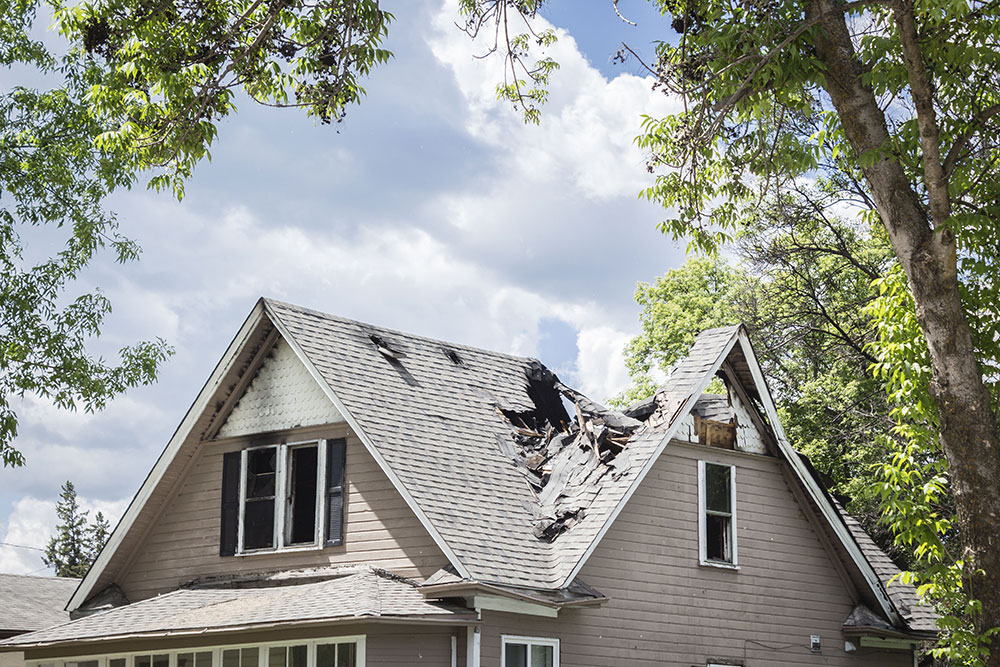While most homeowners don't think of foundation problems as the source of roof problems, they can be very costly. The foundation of a home is the most important part of the house. It supports the roof, floors, and ceilings, and can lead to a myriad of other problems. A neglected foundation can lead to leaky roofing systems and even a costly nightmare. Fortunately, proper care of the building's foundation protects both the roof and the interior of the house.
While foundation problems aren't immediately noticeable, they can lead to serious damage. When the foundation is weak, the roof will move with it, potentially resulting in a collapse. This movement can lead to leaks, a damaged roof, and mold and mildew. The sooner you deal with the problem, the better, as the consequences can be costly and difficult to repair. However, if the foundation is too weak, a roofing replacement may be the only option.
Another common cause of roof problems is poor drainage and tree roots. These trees can penetrate the foundation, absorbing moisture. When the roots do this, the soil beneath the foundation shrinks, and the foundation drops. The foundation can then experience further damage, resulting in a sagging roof. The roof should be inspected by a professional as soon as possible. In the meantime, you should avoid any unnecessary repairs and make sure the foundation is in good condition.
Common Causes of Roof Damage
There are many common reasons why roofs get damaged. Heavy rain, for example, can wreak havoc on your roof, since it brings a high volume of water with it. The excess water flows down your roof, creating small openings that water can easily get into. When water collects in valleys on your home's rooftop, it refreezes into ice, weakening it and making it vulnerable to storms.
Even moderate daily winds can cause roof damage. Strong winds can break through shingles and weaken roofing materials. The instability of a roof can be compromised by excessive wind and hail. In fact, 90 percent of high-wind or hail damages claims will result in costs to the building owners. Fortunately, if you have a roof that is already damaged, you should have it inspected regularly. It is important to take immediate action when a leak is detected, so that further damages don't occur.
Weather is another major cause of roof damage. Besides high winds, severe winds can also cause damage to your roof. Hurricanes, tornadoes, and spring storms are some of the most common sources of damage to roofs. These extreme weather conditions can tear shingles and other parts of your home apart, so it's important to have it checked as soon as possible. Otherwise, you may end up paying for repairs and putting off your own repairs.
What Damages Can Happen to a Foundation System?
When it comes to the integrity of a home's foundation system, the first thing you should check is drainage. Water should drain away from your home, not towards it. If it is not, it can accumulate on the ground around your foundation, causing structural problems. In the case of a basement, water seeping into the basement can cause it to shift. If you notice that your sidewalks are uneven, this is a good indication that your foundation system may be failing.
Major renovations can affect a home's foundation. While it might be tempting to save money by removing a wall, major remodeling projects can alter the balance of your house and lead to damage to the concrete. If you plan to make structural changes, consult a certified contractor, blueprints, and your city. If you live in a sloping or expansive clay area, you should be extra careful with the drainage of your foundation system.
When you build a new home, you should carefully consider the type of soil under the foundation. Some types of soil are more porous than others, so they will be more likely to swell and shrink more than other types of soil. This puts a lot of stress on your foundation, and if you're building your home on different types of soil, you should consider the potential damage that differential settlement can cause.
